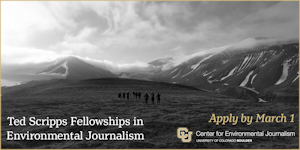"Short cuts, subsidies and tax breaks helped create 7,000 jobs in the Powder River Basin. Damage to water, air and land is part of the price borne by the public, too."
"On the morning after the autumn's first snow, L.J. Turner looked out over a creek near his house that reliably watered his family's livestock for more than 70 years. A third-generation Wyoming rancher, Turner remembered hunting rabbits there amid lush marsh grasses and high cottonwood trees when he was a boy in the 1950s.
Then the nation's three largest coal mines began to dig in downhill from his 10,000-acre ranch. To get to the coal, they blasted through and drained the region's aquifers. The marsh grasses vanished. The creek began to recede and eventually ran dry, as did a well Turner dug to feed a livestock watering trough.
As the mines grew and oil and gas wells came, Turner lost not only his ranch's abundant water, but also 6,000 acres he once leased as grazing land—scraped away to reach the coal. Now his cattle herd is half what it was, calves near the coal mines die at alarming rates, and he has had to spend thousands of dollars drilling deeper and deeper wells, eating into an already reduced income."
Neela Banerjee and Robert McClure report for InsideClimate News December 29, 2017.
Federal Giveaways to Big Coal Leave Ranchers and Taxpayers in the Cold
Source: InsideClimate News, 12/29/2017













 Advertisement
Advertisement 



